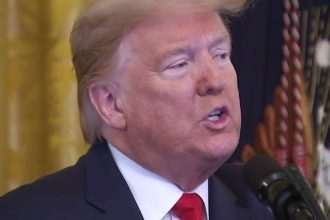On Tuesday, December 3, 2024, China announced that it would ban exports to the United States of gallium, germanium, antimony, and other key high-tech materials with potential military applications as a general principle, lashing back at U.S. limits on semiconductor-related exports.
The Chinese Commerce Minister announced this after Washington expanded its list of Chinese companies subject to export controls on computer chip-making equipment, software, and high-bandwidth memory chips. Such chips are needed for advanced applications.
The tightening of trade restrictions comes as President-elect Donald Trump has threatened to substantially increase tariffs on imports from China and other countries, potentially exacerbating simmering trade and technological disputes.
China’s Foreign Ministry also issued a vehement reproof. In a routine briefing Tuesday, Lin Jian, a Chinese Foreign Ministry spokesperson, said, “China has lodged stern protests with the U.S. for its update of the semiconductor export control measures, sanctions against Chinese companies, and malicious suppression of China’s technological progress.”
“I want to reiterate that China firmly opposes the U.S. overstretching the concept of national security, abuse of export control measures, and illegal unilateral sanctions and long-arm jurisdiction against Chinese companies,” Lin added.
In July 2023, China said it would require exporters to apply for licenses to send strategically important materials such as gallium and germanium to the U.S. In August, the Chinese Commerce Ministry announced that it would ban antimony exports, which are used in various items ranging from batteries to weaponry, as well as tighten graphite export controls. Such minerals are considered critical for national security.
According to a 2021 report from the U.S. International Trade Commission, China is a major manufacturer of antimony, which is used in flame retardants, batteries, night-vision goggles, and nuclear weapon development.
Beijing’s announcement on Tuesday also included export restrictions on super-hard materials like diamonds and other synthetic materials that are not compressible and extremely dense. China’s licensing requirements, revealed in August, also included smelting and separation techniques, machinery, and other items associated with such super-hard materials.
China is the world’s largest producer of gallium and germanium, which are produced in modest quantities but are required to manufacture computer chips for cell phones, automobiles, and other items, as well as solar panels and military equipment.
China’s declaration came on Monday after the United States launched its third crackdown on China’s semiconductor industry in three years. It restricted shipments to 140 Chinese enterprises, including semiconductor equipment manufacturer Naura Technology Group, by adding them to a so-called “entity list” subject to severe export controls.
Beijing’s Commerce Ministry objected and pledged to protect China’s “rights and interests.” In response to China’s declaration on Tuesday, the White House stated that it would take “necessary steps to mitigate any Chinese coercive actions.”
The export restrictions have had a mixed impact on prices for those critical minerals, with the price of antimony more than doubling this year to over $25,000 per ton. Prices for gallium, germanium, and graphite have also mostly risen.
Will China’s export ban on critical materials escalate tensions with the U.S. and disrupt global supply chains?















